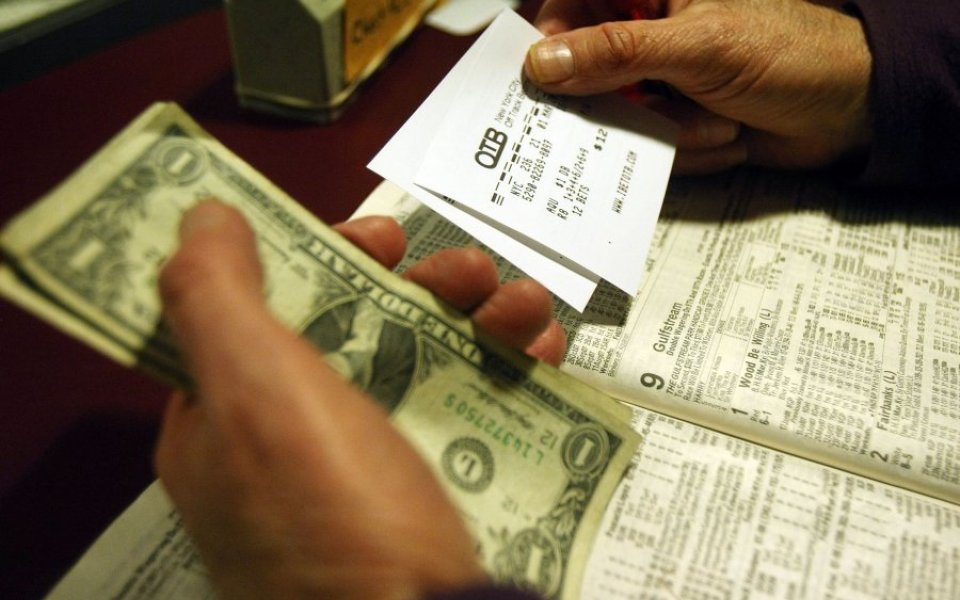William Hill share price falls after it warns on full-year profit

Another bad day for UK bookies, after William Hill issued a profit warning, causing its shares to fall.
The figures
UK bookie William Hill has said full-year operating profit will be at the bottom of analysts' consensus, with the market currently forecasting £290.9m to £312.1m.
The warning came as net revenue fell nine per cent in the 13 weeks to September 29, while operating profit slumped 39 per cent.
The company was also hit with a £23m bill from the UK's Point of Consumption Tax.
Shares in the company were down 8.16 per cent at 317.5p in morning trading.
Why it's interesting
UK regulation has created tough times for bookies, as the point of consumption tax took effect in December, and the machines game duty rose from 20 to 25 per cent as part of last year's Budget.
This has sparked a wave of consolidation in the gambling industry: Ladbrokes is merging with rival Gala Coral while Betfair and Paddy Power are also teaming up. But William Hill was left out in the cold, after an unsuccessful bid for online gambling company 888 Holdings.
Gambling companies' latest batch of results have been disappointing because of the period they compare with – last year many enjoyed extra business on the back of World Cup fever.
What William Hill said
The third quarter was always going to be a tough … given last year's World Cup and very strong gross win margin, allied to £23m of additional gambling duties this year.
It also featured weaker than expected sporting results impacting retail, the US and Australia, and the drag effect of the non-core market decline in online.
The growth in online's core markets – the UK, Italy and Spain – remains strong for both betting and gaming.
While good operating cost discipline has partially offset the weaker than expected results and non-core market impacts, the board now expects full-year operating profit to be around the bottom of the analyst consensus range.
In short
William Hill's results show the government's gambling taxes are begging to bite – after it swallowed a £23m bill for the point of consumption tax.